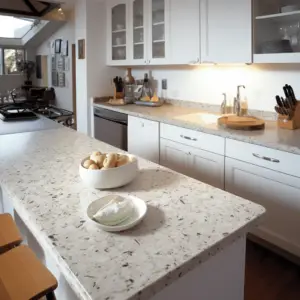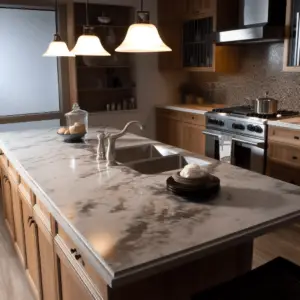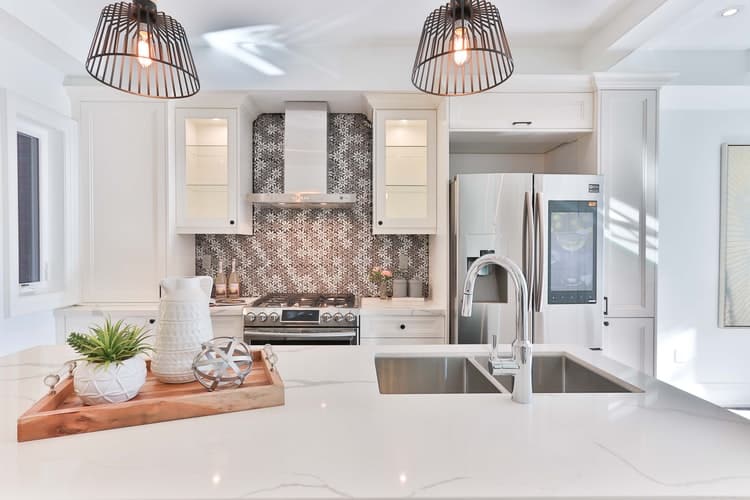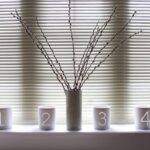Corian vs. Formica is the brand name of a solid surface material created by DuPont in 1967.
It is a composite of acrylic polymer and alumina trihydrate (ATH) which is derived from bauxite ores.
Corian vs. Formica was developed primarily as a kitchen and bathroom countertop but has evolved use for other applications as well.
Formica laminate is also a composite material initially made of paper, textile, and resins to form a sturdy opaque sheet.
Since its invention in 1912, it has evolved tremendously to include layered pressed wood panels and particleboard ensconced in resin and is a popular material as an interior décor item for household countertops.
Table of Contents
Corian Vs Formica an Overview

For the sake of clarity, this is a review of the products, Corian Solid Surface vs Formica Laminate.
The company Formica also has a solid surface product which is similar if not the same as the Corian solid surface product. The Formica Solid Surface product is often mistakenly called Corian.
In selecting either Corian or Formica for your countertops, you will need to consider their characteristics against your needs.
Composition
The most important difference between the two elements is how they are made.
Corian Solid Surface is a solid block made of the same material all the way through. This is why it is called “solid surface.”
When Formica laminate is cut in half, you can see layers of wood substrates, textile or paper composites, and resin layers on either side that act as a protected covering.
Corian comes in pieces that are about an inch thick, but special orders can be made.
In general, Formica laminate is thinner, but in recent years, it has been made in thicker sizes to meet the demand for stronger and heavy kitchen countertops.
As for the materials used for the countertops, these differences will affect most, if not all, of the qualities of the two items.
Water Resistance
Corian doesn’t have pores, which makes it a great choice for cooking countertops.
This means that it doesn’t get dirty very quickly, if at all. Keeping it clean and healthy doesn’t take much work; just washing it with soap and water will do. There are also times when cleaning can be done.
This also means that bacteria and mold can’t grow on the tabletop because water can’t seep through and get stuck on the surface or in cracks.
Laminate is also a tough, water-resistant material that doesn’t get damaged by water. It is easy to clean and only needs to be wiped down with soap and water and disinfected every so often.
But if the laminate breaks, water will do a lot of damage to the inside, which is made of porous materials that will slowly soak up water, grow, wear away, and become a home for bacteria if not replaced.
Heat Resistance
Corian Solid Surface can withstand temperatures of up to 212 degrees Fahrenheit and in some cases, the damage is only possible at over 250 degrees.
At 150 degrees Fahrenheit your laminate countertop will begin to melt and sustain permanent heat damage.
While Corian can withstand higher temperatures, by kitchen standards, that is not much heat and it would be advisable generally to avoid placing hot items directly on your countertops.
In any event, constant heat exposure even on Corian countertops will eventually create heat stains which will leave your countertops rather ugly.
Appearance
As with all inventions, time and innovation result in incremental improvements.
Corian Solid Surface has evolved from a single color product and now comes in a dizzying range of patterns, textures, colors, and motifs numbering at approximately a hundred.
Laminate has equally expanded its repertoire of colors, shades, and patterns to give you an endless selection of possibilities.
Improved sheet designs today even mimic the sophisticated appearance of quartz and granite, perfect for creating different design periods such as country, rustic and mid-century facades.
With laminate, the possibilities are truly endless.
For aesthetics, you cannot go wrong with either.
Maintenance and Repair
Both Corian and Formica laminate are incredibly easy to maintain. Wipe them down with water and mild soap once you are done working and from time to time wipe them down using a dilute antiseptic solution.
Both surfaces are stain-resistant but not stain proof so it is best to promptly wipe away staining agents or keep them off your countertops entirely.
Neither Corian nor Formica laminate scratches easily. Both surfaces are hard and resist cracking.
Formica laminate is however more prone to cracking than Corian. Once it has cracked, it is not reparable and even if a resin gel coating can be applied to seal the crack, it is impossible to achieve the even finish it previously had. It would be better to replace the countertop entirely.
Cracks on Corian surfaces can be sanded down and smoothened with a perfect finish as though the crack never happened, thanks to the homogenous nature of the solid surface.
Durability
Corian easily outlasts Formica laminate although both last decades. Corian can last up to 30 years in impeccable condition while Formica lasts about 15-20 years with the utmost care taken to prevent cracking.
Installation

The DIY culture may be spreading fast but with countertops, self-installation is a bad idea. Corian countertops can only be installed by a professional who will be able to join separate slabs correctly to create the seamless single slab look you want to achieve.
Attempting this yourself may leave spaces between slabs which will allow water and moisture through creating a breeding ground for bacteria.
Though Formica is touted as easy to install by yourself, it is also ill-advised to do it yourself. Installing them yourself increases the risk of cracking and scratching them, leaving room in the joints and cracks which will allow water damage.
Cost
Corian Solid Surface costs more per square foot than Formica laminate. The composite materials for Formica laminate are cheaper and easier to mold than Corian.
Corian Solid Surface is also harder and thicker than laminate hence costs more to install.
Verdict: Corian Vs Formica
Formica laminate performs exceptionally well as a kitchen countertop and some models cannot even be differentiated from Corian and other solid surface brands.
In terms of wholesome value, however, Corian Solid Surface is the superior product.


